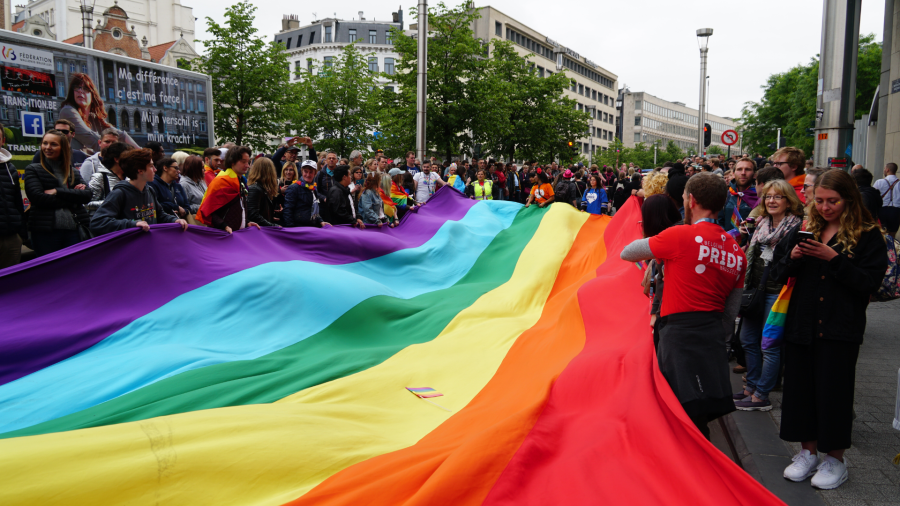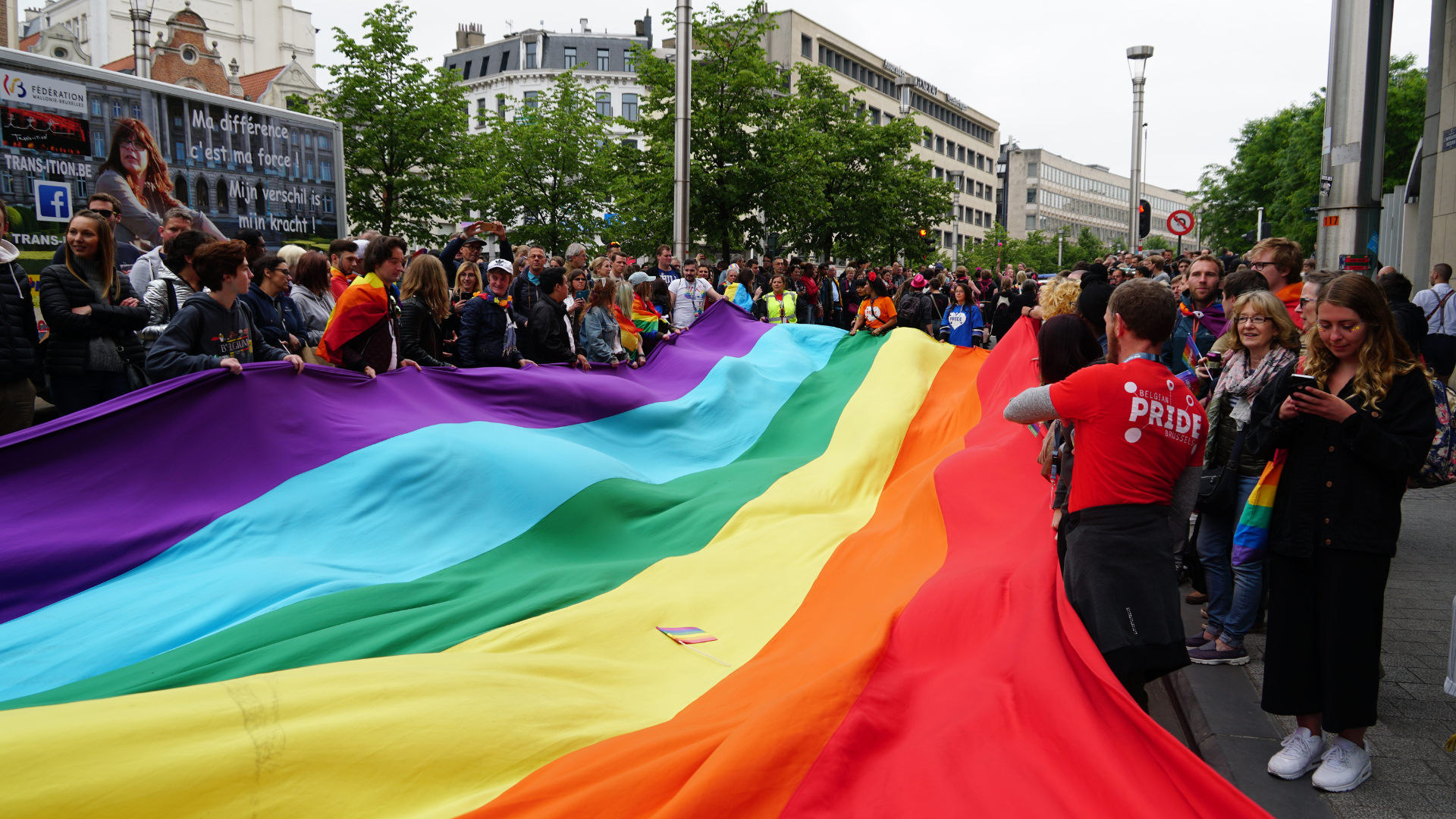
Abdellah Taïa: Morocco’s first gay writer reimagines Islam, queer
Abdellah Taïa is Morocco’s first gay writer in history living in Paris who reimagines being muslim, queer and African. Abdellah Taïa was born in 1973 in Rabat, Morocco. He currently lives in Paris. He is the first writer from north Africa – and in fact the Arab world – to openly declare that he is […]

Abdellah Taïa is Morocco’s first gay writer in history living in Paris who reimagines being muslim, queer and African.
Abdellah Taïa was born in 1973 in Rabat, Morocco. He currently lives in Paris. He is the first writer from north Africa – and in fact the Arab world – to openly declare that he is gay. In 2006, he came out in a highly publicised article in the Moroccan magazine Tel Quel. This was considered scandalous by conservative Muslims.
Being queer is often seen as conflicting with being religious. Yet, in African contexts – as in other parts of the world – religion and queerness intersect in multiple and productive ways. Much of the academic study of religion and queerness in Africa has focused on Christianity. This runs the risk of reinforcing the idea of Islam as a more homophobic “other”. However, Islam can be a resource of queer creativity and subjectivity in contemporary Africa.
ALSO READ: Nigeria’s debt: economist analyses the country’s future impact
A small but growing body of literary works have represented what queerness means in African Muslim societies. Abdellah Taia’s novels are a significant example of this. We came together as a scholar of French and queer literature, and a scholar of religion and African studies to consider Taïa’s work alongside texts by queer Muslim writers from other parts of the continent. In our research we argue that doing so recognises the continent’s political, cultural and intellectual diversity.
We also tackle the problematic historical distinctions between north and sub-Saharan Africa, which are often imagined as different and diametrically opposed. In fact, they share many lived Muslim African experiences.
ALSO READ: Trump found liable for sexually abusing writer
ALSO READ: ‘Shouting at Prince Harry’: Prince and ghostwriter go head to head
ABDELLAH TAÏA’S WORK
Taïa has published numerous novels, often with a semi-autobiographical element. Abdellah Taïa also produced a film, Salvation Army, that details the complexity of being gay in Muslim societies of Morocco. Although his work has received critical acclaim and awards internationally, this has not been the case in his home country.
His most notable novels that have been translated into English include Salvation Army (2009), An Arab Melancholia (2012) and Infidels (2016). These all challenge the culture of discretion and silence on queer-related issues in north Africa and the broader Muslim world. Abdellah Taïa’s books have played a key role in building an archive of African queerness and have foregrounded the place of Islam in such gender and sexual identities.
ISLAM IS NOT INHERENTLY HOMOPHOBIC: ABDELLAH TAÏA’S IDEAS
Taïa’s novels demonstrate that Muslim cultures and Islamic traditions are not inherently homophobic. This counters the common perception by Muslim conservatives that homosexuality is a sin. Rather, Muslim social spaces are portrayed as promoting physical closeness and contact between bodies – Muslim societies are linked to considerable levels of homosociality and tolerance for homoeroticism.
ALSO READ: Ed Sheeran, singer and song writer wins US trial lawsuit
ALSO READ: Noni Jabavu was a SA writer: A book shows how relevant she still is
For Taïa, queer bodies can find intimacy, protection and acceptance in the ceremonial and mystical spaces created by Islamic practices of communal and private prayer. In Infidels, he describes how the space of the hammam, or steam baths, is at once homosocial, intimate and erotic. During his first visit to a hammam, the narrator is surprised by how men showed off their virility. He sees men “in a new light: fragile, sensitive, handsome, and open to all experiences”. He says:
An infinite tenderness passed between their bodies, through their strongly scented, intoxicating skin. They brushed against each other, they touched. Pure sensuality. Writers from sub-Saharan Africa have supported Abdellah Taïa’s assertion of how Muslim cultures generally tolerate queerness. Novels like Fairytales for Lost Children by the Somali writer Diriye Osman, Confessions of a Gambler by Rayda Jacobs, as well as Jamil F. Khan’s Khamr: The Makings of a Waterslams highlight how queer sexuality is tolerated in Muslim communities in different African countries.
ALSO READ: How to prevent ChatGPT becoming a nightmare for writers
ALSO READ: Cricket writer slams Johannesburg, South Africa after ‘tour from hell’
REIMAGINING ISLAM
Islam, like the other Abrahamic religions, can be intolerant of queerness. Different parts of the Quran are cited in admonishing homosexuality. Abdellah Taïa’s novels, like those from sub-Saharan Africa, show that it’s possible to rethink Islam to find within it freedom of being and expression. This is a restorative and liberatory process. Reimagining Islam is rooted in specific local contexts and histories. However, when these disparate histories, texts and contexts are read together, they give a rich impression of how Islam tolerates queerness on the continent, both historically and to date.
The protagonist of Salvation Army explains: Little by little, I re-examine my views about Arab culture, Moroccan tradition, and Islam. Lose myself entirely, the better to find myself. The reimagining of Islam takes place not outside the religion, but rather within it. Another character in Infidels finds that: God already accepts us as we are. He made us this way. In this condition. In this situation. We accept his decisions … But He, God, Allah, is not like them, isn’t like the image they made of Him. God is in me. He’s also in you.
WHY THIS MATTERS
Literary texts are crucial in illuminating the diverse ways queerness exists and is negotiated in Muslim contexts in Africa. What emerges from examining these novels is that practising Islamic ritual and faith does not necessarily have to conflict with queer African lived realities. Rather, Islam can affirm these marginalised ways of being.
Admittedly, some queer African Muslims experience considerable levels of religiously motivated queerphobia. This disparity, however, highlights the importance of creative and literary writing as a tool for representing, critiquing and reimagining religious realities and their impact on everyday lived experiences. Literary texts do not simply reflect, but model the world. Therefore, they can be seen as forms of African Muslim queer worldmaking.
